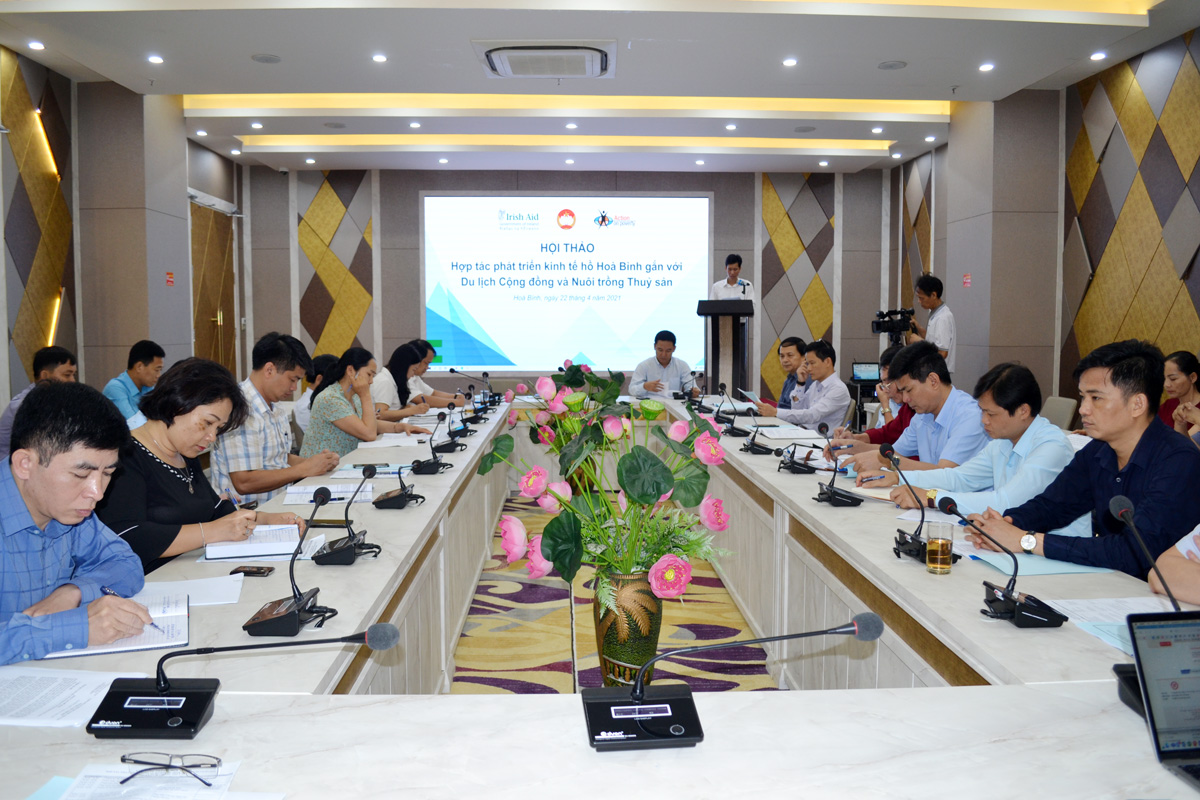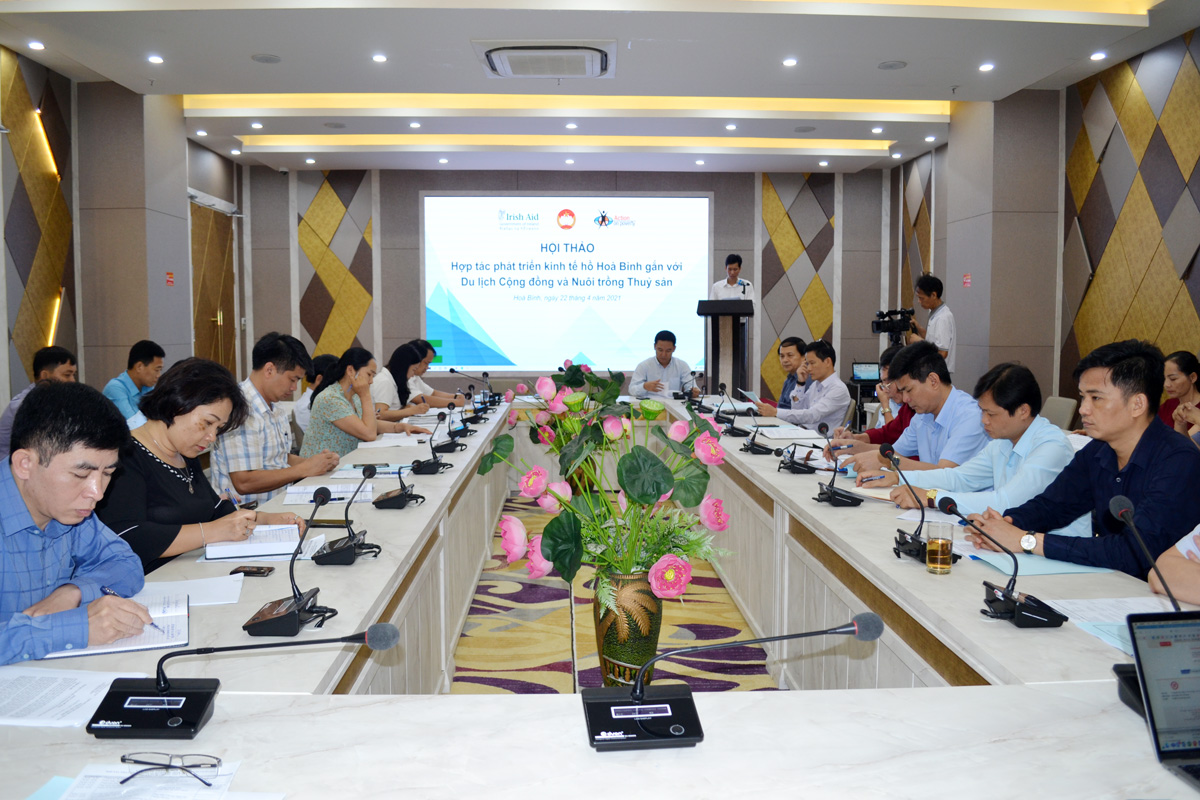
(HBO) - Within the framework of the Equitable Alliances for Livelihoods (EQUAL) of Ethnic Minorities, the Standing Board of the Vietnam Fatherland Front Committee of Hoa Binh province, in collaboration with the Action on Poverty (AOP) organisation, held a workshop discussing measures to boost economic development in Hoa Binh Lake region in combination with community-based tourism and aquaculture. Representatives from provincial departments, sectors, districts, Hoa Binh city and several relevant communes attended the event.
 An overview of the workshop.
An overview of the workshop.
Eleven reports were delivered at the
workshop, with discussions focusing on development planning of the Hoa Binh
Lake national tourist site and development orientations, Hoa Binh lake aquaculture
development planning, management of water drainage and its impact on
aquaculture and tourism, management of resources of Hoa Binh lake, and
experience of Da Bac and Tan Lac districts and several communes.
Speeches highlighted the important role and
potential of the lake, particularly in tourism and aquaculture development.
Over the past times, tourism in general and community-based tourism in
particular in the Hoa Binh lake region has developed strongly. Several
community-based tourism hamlets such as Da Bia and Ke in Da Bac district and
Ngoi in Tan Lac district have gradually become famous in the tourism map. Aquaculture
on the lake has expanded, with more than 4,200 fish cages.
The workshop also discussed difficulties
and challenges in the exploitation and development of Hoa Binh lake’s resources
such as the development of tourism and aquaculture failing to meet potential,
and the lack of several criteria to turn it into a national tourism site, and
those related to environmental protection, infrastructure and cultural
identities of ethnic minority groups and livelihoods of locals.
Participants proposed several solutions,
mechanisms and policies to increase the efficiency of cooperation in the
exploitation and development of resources: investment and development of
infrastructure connecting roads and waterways, opening of new tours, supporting
the building of community-based tourism models, the establishment of linkage
chains of farm produce production and consumption, and strengthening the
promotion of tourism and local specialties./.
According to data from the Hoa Binh Provincial Party Committee, the industrial production index for the first six months of 2025 is estimated to have increased by 20% compared to the same period last year. This marks the highest year-on-year growth rate for this period since 2020.
In the first six months of 2025, Hoa Binh province’s export turnover was estimated at 1.145 billion USD, marking an 18.11% increase compared to the same period in 2024. Import turnover was estimated at $ 804 million, a 17.15% increase, which helped the province maintain a positive trade balance.
The lives of the ethnic minority farmers in Tan Lac district have gradually improved thanks to the new directions in agricultural production. This is a testament to the collective strength fostered through the professional associations and groups implemented by various levels of the district’s Farmers’ Union.
With the motto the "product quality comes first,” after nearly one year of establishment and operation, Muong village’s Clean Food Agricultural and Commercial Cooperative, located in Cau Hamlet, Hung Son Commune (Kim Boi district), has launched reputable, high-quality agricultural products to the market that are well-received by consumers. The products such as Muong village’s pork sausage, salt-cured chicken, and salt-cured pork hocks have gradually carved out a place in the market and they are on the path to obtaining the OCOP certification.
In the past, the phrase "bumper harvest, rock-bottom prices" was a familiar refrain for Vietnamese farmers engaged in fragmented, small-scale agriculture. But today, a new spirit is emerging across rural areas of Hoa Binh province - one of collaboration, organisation, and collective economic models that provide a stable foundation for production.
Maintaining growing area codes and packing facility codes in accordance with regulations is a mandatory requirement for agricultural products to be eligible for export. Recently, the Department of Agriculture and Environment of Hoa Binh province has intensified technical supervision of designated farming areas and packing facilities to safeguard the "green passport" that enables its products to access international markets.



 An overview of the workshop.
An overview of the workshop.